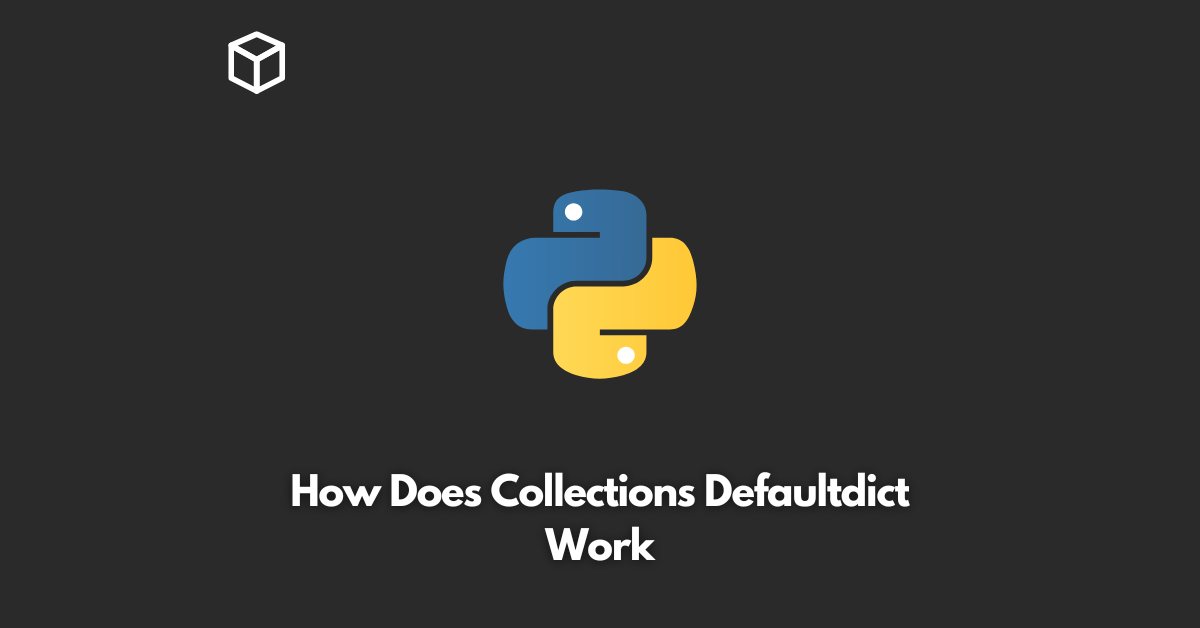Python’s collections module offers a powerful data structure called defaultdict.
This dictionary-like object works exactly like a regular dictionary, but it has a default value for any keys that don’t exist in the dictionary.
In this tutorial, we’ll explore what defaultdict is, why it’s useful, and how to use it in your Python programs.
What is collections defaultdict?
defaultdict is a subclass of the built-in dict class.
It overrides one method to provide a default value for nonexistent keys.
This default value is specified when the defaultdict is created and can be any value you like, including a function or a lambda.
The important difference between defaultdict and a regular dictionary is that, when you access a key that doesn’t exist in a regular dictionary, a KeyError is raised.
But, when you access a key that doesn’t exist in a defaultdict, the default value specified during creation is returned.
Why use collections defaultdict?
defaultdict is useful when you want to initialize a dictionary with a default value for any keys that don’t already exist.
This can save you from having to check if a key exists before accessing its value, and from having to set a value for nonexistent keys.
Additionally, defaultdict can be faster than a regular dictionary for certain use cases, since it doesn’t raise an exception when accessing nonexistent keys.
Using collections defaultdict
To create a defaultdict, you need to pass the default value to the constructor.
Here’s an example that creates a defaultdict with a default value of 0:
from collections import defaultdict word_counts = defaultdict(int)
In this example, the default value is an integer with the value of 0.
This means that if we access a key that doesn’t exist in word_counts, it will return 0.
We can use defaultdict just like a regular dictionary. For example, we can add items to it using square bracket notation:
word_counts['python'] += 1 word_counts['defaultdict'] += 1
And we can access values using square bracket notation as well:
print(word_counts['python']) # 1 print(word_counts['defaultdict']) # 1
Note that, since defaultdict returns the default value for nonexistent keys, we don’t have to worry about KeyErrors:
print(word_counts['nonexistent_key']) # 0
Another useful feature of defaultdict is that you can specify a function as the default value. This function will be called with no arguments every time a nonexistent key is accessed:
from collections import defaultdict def default_value(): return 'Key not found' word_dict = defaultdict(default_value) print(word_dict['python']) # 'Key not found'
In this example, the default value is a function that returns the string “Key not found”.
Conclusion
defaultdict is a powerful data structure that can save you time and effort when working with dictionaries.
It’s simple to use and can be a great addition to your toolkit for solving problems with dictionaries.




